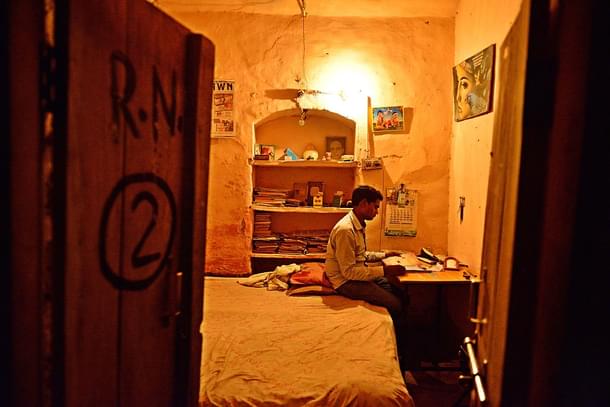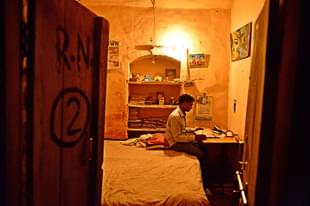Politics
Self-Financed Colleges A Hotbed Of Corruption In Uttar Pradesh
Atul Chandra
Nov 16, 2017, 03:51 PM | Updated 03:51 PM IST
Save & read from anywhere!
Bookmark stories for easy access on any device or the Swarajya app.


An All India Survey on Higher Education carried out in 2011-12 said in its key findings that Uttar Pradesh (UP) was among six states with highest number of colleges in the country.
The problem of plenty has resulted in lack of monitoring, compromise on quality of faculty and teaching being imparted in degree colleges falling in the self-finance category. As there is a nexus between politicians and education mafia, these colleges are breeding grounds of nepotism and corruption.
A former chairman of the Higher Education Services Commission, UP, said that the rot in the education system set in when politicians and those with the right connections were allowed to open self-financed degree colleges with affiliation to various universities. (Self-financed degree colleges are ones which do not receive any financial assistance from the government or the University Grants Commission (UGC) and have their own set of rules. They charge double the fees and offer low pay to teachers).
A vice-chancellor said that higher education in the state was at its nadir. “With primary and secondary education in shambles, how can higher education meet quality standards,” he said.
As they don't get any financial aid from either the state government or the UGC, the private managements of hundreds of these colleges compromised on quality by misrepresenting facts about the number of students, faculty and infrastructure.
Agra University Vice-Chancellor Prof Arvind Dikshit put it more bluntly, “in many cases they have neither rooms, nor teachers.”
A vice-chancellor, on condition of anonymity, said, “many of these colleges use names of suitably qualified teachers only for seeking affiliation because it is a mandatory requirement. Once a university grants affiliation they employ unqualified people on a monthly salary of Rs 5,000-Rs 10,000 for teaching work.” At times, the same names are used by various affiliates to get recognition.
A qualified teacher after clearing the National Eligibility Test (NET) would expect UGC scale of pay. The unscrupulous managements pay less than the amount they ask the teachers to sign on.
Calling the self-financed colleges a scam bigger than 2G, this VC said that since most of the work was being done manually there was no way to check if a person was on the rolls of one or more colleges, and whether the management was using a dummy for actual teaching, he said.
According to sources, there are close to 4,500 self-financed degree colleges in UP. Between just two of them there are 1,400 such colleges – Agra University has close to “1,000 self-financed colleges” affiliated to it while Faizabad-based Ram Manohar Lohia Avadh University has around 400. Not all of them can be categorised as fraud, however, as there are quite a few colleges which maintain very high standards, said an official.
To stem the rot, the VCs of Agra and Avadh universities have started using technology. “I am using technology to streamline the system. I have made Aadhar and PAN cards mandatory to end duplication and triplication,” said Prof Manoj Dixit of Avadh University.
Prof Arvind Dixit said that he was introducing biometric attendance and CCTV cameras to ensure quality teaching standards were maintained and to put an end to malpractices.
“I did not give affiliation to 34 BEd colleges as they did not have teachers,” Agra University VC said.
Both the VCs underscored the problem of paucity of teachers. “There aren’t enough good quality teachers,” they said.
But according to a former chairman of the Higher Education Services Selection Commission, there were around 45,000 NET-qualified teachers waiting to be absorbed.
Avadh University’s VC, on the other hand, said that NET qualifiers do not make good teachers. “Many of them are bad teachers because they can neither speak nor write, both of which are essential for a good teacher.”
He blamed the Central Board of Secondary Education, which conducts the NET, for asking objective type questions, which was not the real test of someone aspiring to be a teacher.
At a vice-chancellors' conference held in Lucknow, a proposal to set up a parallel system called the State Level Education Test (SLET) was approved. The SLET would begin functioning from next session.
At least two former bureaucrats familiar with the system defended NET and said that SLET was being created to make money and promote nepotism at a larger scale. “It was experimented with during Mulayam Singh Yadav’s rule and became a big racket. That is why it was done away with,” one of them said.
Atul Chandra is former Resident Editor, The Times of India, Lucknow. He has written extensively on politics in Uttar Pradesh.





